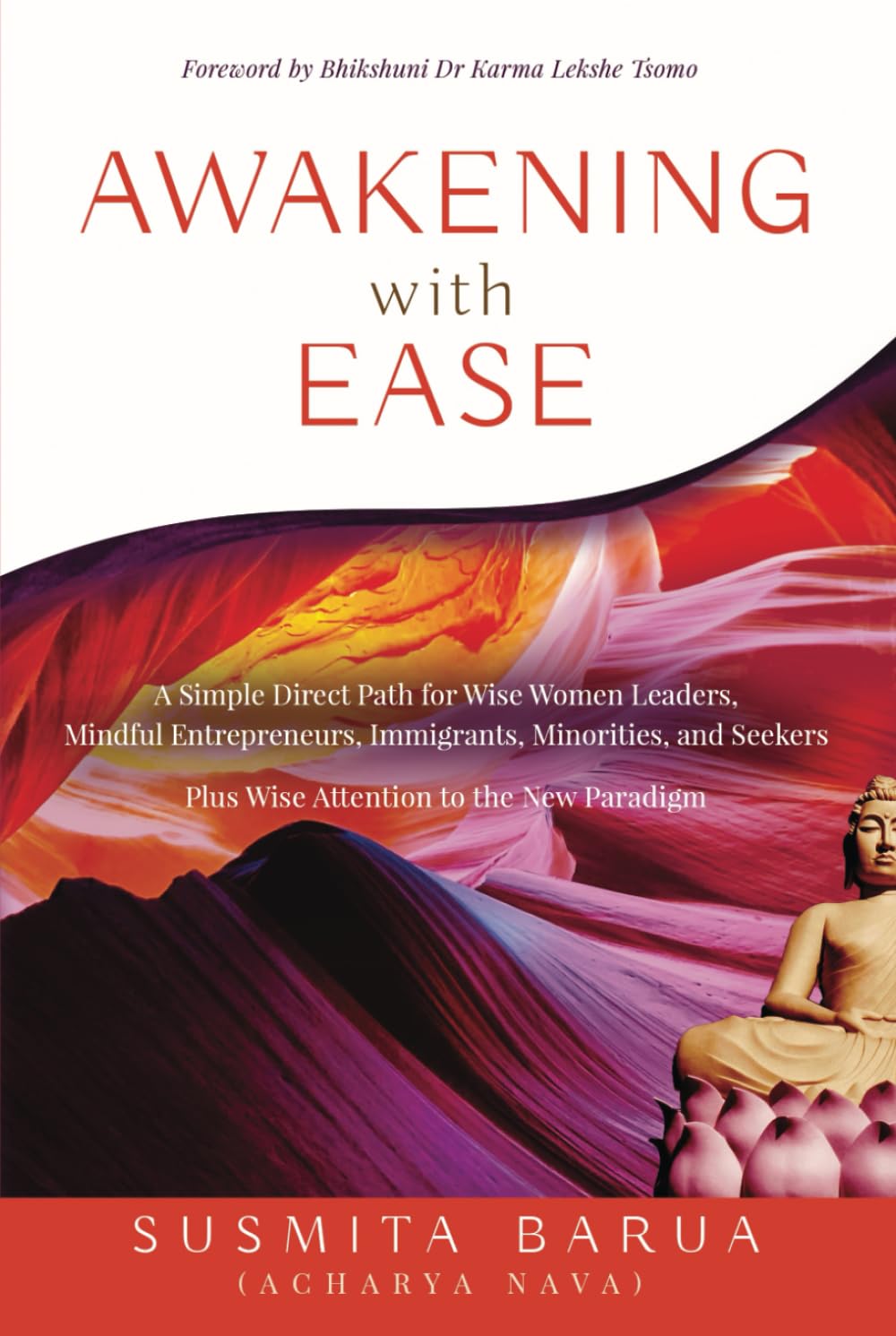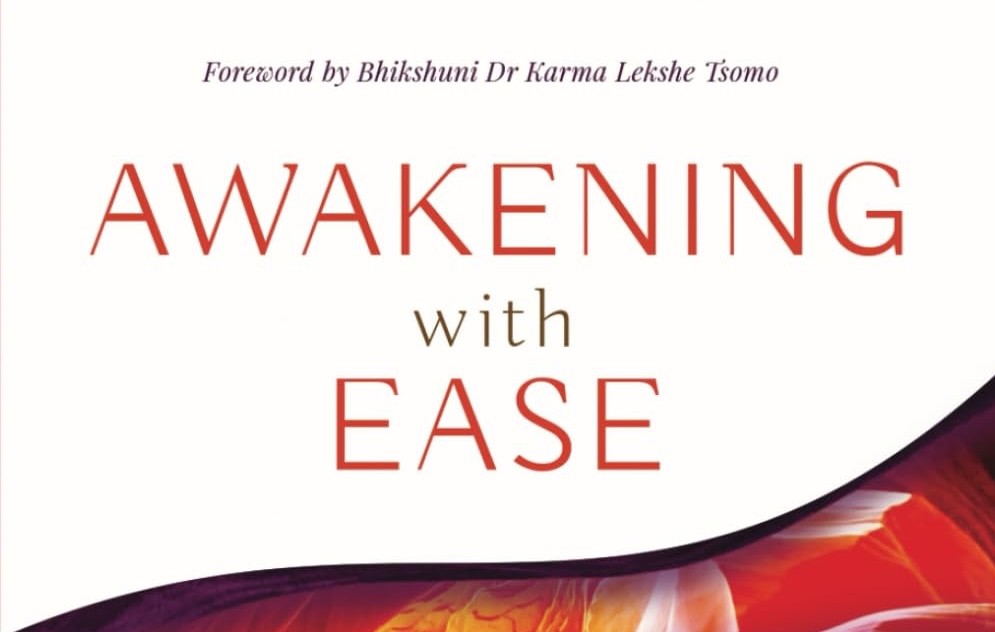By Nachaya Campbell-Allen
Susmita Barua is an independent, self-published author who has been very active within the Buddhist world for many years, including as a teacher and panelist in international Buddhist conferences. In her debut book, she shares her experiences of becoming more aware of layers of reality, mundane and spiritual and offers us tools of self-reflection for our own journey. And it would seem that her life came with challenges that many experience when displaced, as such Barua offers herself to help those who may have had similar plights of prejudice in life, especially those biased against due to gender and color and even includes ways to contact her should you wish to.
I often reflect upon the wisdom masters of old who became self-awakened and self-enlightened who started movements, some of which changed humanity. Within Buddhism, one readily accepts the Tertöns who discover hidden termas, even though there isn’t any actual evidence other than their wisdom shared. Enlightenment doesn’t come with a PhD and we may find wisdom in unexpected places. And today, maybe with the aid of the information-rich internet, so many are truly awakening from the ignorance of Plato’s cave. Barua has termed her process Awakening With Ease creating the acronym AWE, which she lays out in her book, a good portion of which essentially reads as a memoir with self-reflective exercises. Using one’s own life experiences is generally a very effective way of structuring a book or at the very least the bones upon which to hang the meat of lessons and usually the essence of that which we have more authority over than anything and I feel that it may have also been quite cathartic for our author to unpack, and possibly be a mirror for some readers.
Certainly, as I read I was reminded of a female friend of mine. She’s in her early 60s now and from India with parents who moved them all to West Coast America while she was still young. While her family lineage and academic and career accomplishments are quite extraordinary, her life also left her with severe PTSD and even after 30 years living in Europe, she still feels the weight of judgement and prejudice of being both a woman and one of color.

As humans, we are simply born. And we are born into cultures and skins that we had no apparent choice over (I say apparent as I cannot make the argument of pre-birth choice with any certainty, or preconception). The problem is not the culture into which consciousness is dropped, but more that in 2024 we are still so antagonistically and aggressively tribal with so little nurturing left.
In fact, I sometimes wonder just how far we’ve come as a global society. Barua makes a case in the book that Gotamti the first recorded feminist, though I may be splitting hairs here, but I would make a case for Sobekneferu who ruled ancient Egypt as a woman, from around 1807 to 1802 BCE. Or possibly even Merneith from approximately 3000 BCE. But I understand her point. Sadly as humans that have allegedly been evolving, our tolerance for other members of our species has remained pitiful. And nearly all this suffering has come with the attachment to religion. The idea that women are still feeling the need to fight for rights, for a voice, for recognition as sentient beings with the same abilities to attain spiritual growth is astounding to me. And I say this as a woman, a mother, a feminist, but mostly as a human.
Finding the love for self and others in this challenging world is part of Barua’s intention here.
Anyone used to a workshop manual type of presentation will recognise the layout of her book. Many micro chapters including an explanation of how to use the book. It has a particular flow which some readers will resonate with more than others, though this type of arrangement and appearance is becoming ever-familiar especially those in the digital world. And whether we are going to love the book, as one subchapter title tells us we’re going to, is of course subject to personal opinion, but I am sure that there are readers for whom the exercises she imparts towards the end will be very helpful indeed. She offers explanations to terms and phrases as she goes along, which is also very helpful for neophytes, as well as lots of quotes from global sources adding to her lessons, as her learned and intuited wisdom unfolds through the pages. The self-reflective meditations, for both on and off the cushion and in the most ordinary daily situations are valuable take-aways from the pages and very practical to incorporate into one’s everyday life. Her book, Awakening with Ease, was published in March 2024 through Amazon Kindle and she tells us to look out for her following book, as this one is merely the primer.
Nachaya Campbell-Allen is a mother of three, philosopher, artist, and iconologist. She was first immersed in Buddhism during the early 1980s when geshes lived in her London home. Nachaya has been working as a professional artist in France since 2009, with a focus on divinity, particularly Eastern motifs. She is part of the Buddhist art collective Dakini as Art (creative sister to the Yogini Project) and now has work being owned by a growing number of collectors worldwide.
Nacahaya also has a deep fascination with peeling back the veil of local narratives and seeing a bigger picture of how things work on both micro and macro levels, marrying profound spirituality with phenomenal experience and our emotional journey and posing questions for contemplation and dialogue. Life is still her biggest educator and single handedly parenting her children has been the biggest teacher of all.


